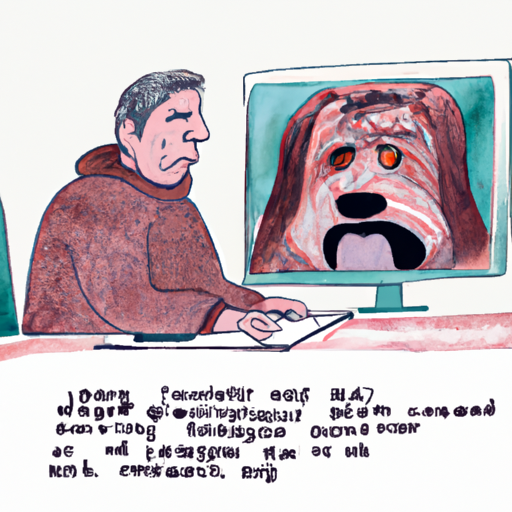As a caregiver, your pet’s health is always on your mind. You might find it disturbing when your dog throws up bile. In this article, we will explore the reasons behind this occurrence and ways to handle it.
1. Understanding Bile and Its Function
Bile is a yellow-green fluid produced by the liver and stored in the gallbladder. It aids in the digestion of fats and removal of toxins from the body. Thus, bile serves an essential function in a dog’s body.
Occasionally, you might notice your dog vomiting this bile, which can be distressing. However, it’s vital to understand that occasional vomiting of bile might not be a severe issue but a natural response to an empty stomach or overeating.
2. Common Causes for Dogs Throwing Up Bile
There are several potential reasons why your dog may throw up bile. Let’s take a look at some of the most common causes:
- Bilious Vomiting Syndrome (BVS): This is a condition where bile leaks into the dog’s stomach, causing inflammation and vomiting.
- Gastroenteritis: Inflammation of the gastrointestinal tract often leads to vomiting bile. This can be caused by food allergies, infections, or toxins.
- Pancreatitis: Inflammation of the pancreas can cause vomiting of bile, especially if the dog has consumed high-fat food.
- Gastric Dilatation-Volvulus (GDV): Also known as bloat, this is a life-threatening condition where the dog’s stomach twists, leading to bile vomiting.
| Cause | Symptoms | Treatment |
|---|---|---|
| BVS | Chronic vomiting, usually in the morning, on an empty stomach | Dietary changes, acid-reducing medications |
| Gastroenteritis | Vomiting, diarrhea, loss of appetite | Dietary changes, antibiotics or antiparasitics if needed |
| Pancreatitis | Vomiting, fever, abdominal pain | Hospitalization, fluid therapy, pain management |
| GDV | Distended abdomen, retching without vomiting, restlessness | Emergency surgery |
3. How to Respond When Your Dog Throws Up Bile
Your response should depend on the frequency and severity of the vomiting. If it’s a one-off event and your dog seems otherwise healthy, monitor them closely but don’t panic.
However, if your dog is frequently vomiting bile, shows signs of distress or other symptoms such as lethargy, loss of appetite, or diarrhea, seek immediate veterinary care.
4. Preventing Bile Vomiting in Dogs
It’s crucial to maintain your pet’s health to prevent them from experiencing discomfort. Here are some tips:
- Feed your dog smaller, more frequent meals.
- Avoid feeding them high-fat foods.
- Ensure they have access to clean, fresh water.
- Regular exercise can aid digestion.
- Regular vet check-ups can catch potential issues early.
5. Understanding When It’s a Medical Emergency
Recognizing when your dog’s vomiting of bile is a medical emergency can save their life. Signs of a serious condition can include rapid breathing, pale gums, a distended abdomen, and excessive drooling. If you notice these symptoms, rush your pet to the vet immediately.
Frequently Asked Questions
1. Is it normal for a dog to throw up bile?
While not common, occasional bile vomiting can occur, especially if your dog has an empty stomach. However, frequent or chronic bile vomiting can indicate a more serious condition and requires a vet’s attention.
2. How often is too often for a dog to vomit bile?
If your dog vomits bile more than once a week or the vomiting is accompanied by other symptoms such as loss of appetite, it’s time to consult a vet.
3. What can I give my dog to stop vomiting bile?
If bile vomiting is a frequent occurrence, your vet may recommend a change in diet or medications to control stomach acid. However, always consult your vet before giving your dog any new food or medicine.
4. Can I prevent my dog from vomiting bile?
Yes, feeding your dog small, frequent meals and avoiding high-fat foods can help. Regular vet check-ups can also help identify any potential issues early.
Remember, as a caregiver, you’re the first line of defense in your pet’s health. Always consult your vet if you’re unsure or worried about your dog’s health.



